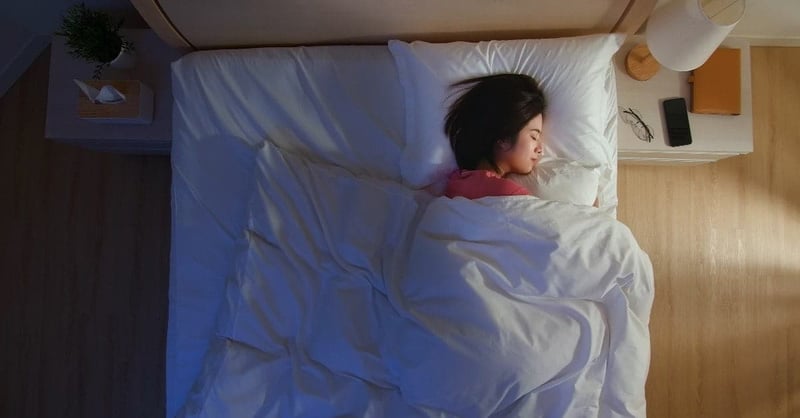What is Delayed Sleep Phase Syndrome?
Published on: February 13, 2022 | Reading time: 🕐 2m

What is delayed sleep phase syndrome?
Delayed sleep phase syndrome (DSPS) is a sleep disorder characterized by a persistent delay in the timing of sleep, compared to more typical bedtime hours. People with DSPS have a natural tendency to fall asleep late at night—for instance, between 2 and 5 am—and wake up in the late morning or early afternoon. It is more common among adolescents and young adults but can affect people of any age.
DSPS stems from a disruption in the body’s circadian rhythm, which regulates the timing of various physiological processes, including the sleep-wake cycle. This results in a mismatch between the internal body clock and the external demands of life.
Understandably, those with DSPS struggle with daytime consequences,1 especially when it comes to morning tasks and responsibilities, and often report excessive sleepiness, depression, fatigue, and concentration difficulties. They may be sleep deprived and cope by taking long naps or sleeping for extended periods when possible.
What causes DSPS?
The exact cause of DSPS is not fully understood but likely involves a combination of factors.2 It tends to run in families, suggesting that there is a genetic component. Some experts believe that people with DSPS may have longer circadian rhythms than average or be more sensitive to the effects of light at night. Environmental factors such as irregular sleep schedules, exposure to artificial light at night, and shift work can disrupt the body’s circadian rhythm and may also increase the risk of DSPS.
What are the treatment options for DSPS?
Some people with DSPS have lifestyles and responsibilities aligned with their body’s natural sleep-wake cycle. However, others struggle to functioning optimally within a society geared more toward morning-oriented routines and activities.
Managing DSPS may involve a combination of lifestyle changes, behavioural strategies, and medication.2 The goal of these strategies is to resynchronize the internal body clock with a more desirable sleep-wake cycle.
- Sleep hygiene practices. Establishing a consistent sleep schedule (including on weekends or days off), avoiding daytime naps, following a relaxing bedtime routine in low-light, and avoiding stimulants like caffeine and nicotine close to bedtime can help promote better sleep.
- Light exposure. Exposure to bright light in the morning can help reset the internal body clock and advance the timing of sleep. It has also been shown to improve daytime fatigue. In the evening, it is important to limit light exposure—use lamps or dimmers in place of bright overhead lighting and avoid digital screens.
- Morning activation. Establishing an activating morning routine can make it easier to wake up at a consistent time. Consider activities that are enjoyable or stimulating like taking a walk, having a shower, getting a workout in, or relaxing with a cup of tea by a bright window.
- Melatonin supplements may be recommended to help shift the timing of sleep. This should be done under the guidance of a doctor.
- For some people with DPSP, a health care professional may recommend a bedtime and wake time that gradually shifts, until the desired sleep-wake cycle is established. This approach is challenging and requires continued commitment to maintain the desired sleep-wake schedule.
If you are also experiencing insomnia, keep in mind that DSPS may be the cause of your insomnia or may be worsening those symptoms. If you continue to experience insomnia after your DSPS is well-managed, we welcome you to reconnect with HALEO to learn about our insomnia program and whether it is an appropriate next step for you.
References:
- Alvarez, B., Dahlitz, M. J., Vignau, J., & Parkes, J. D. (1992). The delayed sleep phase syndrome: clinical and investigative findings in 14 subjects. Journal of Neurology, Neurosurgery & Psychiatry, 55, 665-670. Retrieved from: The delayed sleep phase syndrome: clinical and investigative findings in 14 subjects. | Journal of Neurology, Neurosurgery & Psychiatry (bmj.com)
- Mimic, G., Lovato, N., Gradisar, M., Ferguson, S. A., Burgess, H. J., & Lack, L. C. (2016). The etiology of delayed sleep phase disorder. Sleep Medicine Reviews, 27, 29-38. Retrieved from: The etiology of delayed sleep phase disorder - ScienceDirect
Need help with your sleep?
We can help you! HALEO offers a solution that can contribute to productivity and well-being through quality sleep. Schedule a discovery meeting by booking your time here.




